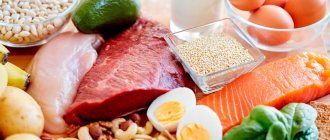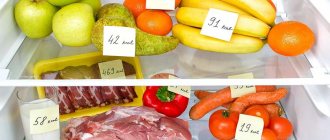It turns out, not so much.
There are 9 calories per gram of fat, so hypothetically you could gain 500 grams of fat if you ate about 4,500 more calories than you burned. To be more precise, this figure will be closer to 4130 kcal. So if you eat 600 calories more than your daily requirement every day, you could gain half a kilo of fat in a week.
But if you eat 4130 kilocalories in one meal, this will not happen. The fact is that the body has certain limits regarding the amount of food that can be converted into fat in a few hours. Everything that comes in above this limit, the body tries to either burn (at the same time your body temperature rises slightly) or excrete (you know in what ways). Processing such a quantity of food also requires certain energy costs.
Thermogenesis
Some of the calories from food will be used for digestion, absorption and metabolization of food. Some of it will burn as heat. This process is called the thermic effect of food (TEF)
TEP makes up about 10% of the body's total daily energy expenditure. The specific number depends on several factors, including the amount of muscle in the body and the composition of meals. The amount of energy required to digest different macronutrients (proteins, fats, carbohydrates) varies:
- Fat provides 9 kilocalories per gram. Its TEP is 0–3%
- Carbohydrates contain 4 kilocalories per gram, their TEP is 5–10%
- Protein contains 4 kilocalories per gram, its TEP is 20–30%.
There is also another effect - an unconscious increase in motor activity, namely the NEAT component.
How does this manifest itself?
You ate more than you needed and gained a lot of energy. You don't feel tired, you want to move. Such movements may involve simple twitching of the arms, fingers, or feet. Even such small and seemingly insignificant movements also lead to a waste of calories. This is how our body unconsciously tries to waste unnecessary energy. Moreover, this effect can also have the opposite side. When we cut calories, our NEAT decreases greatly, and we, on the contrary, unconsciously move less than usual.
NEAT will vary from person to person. This difference partly explains why some people find it easier to gain weight than others.
You can learn more about metabolic processes by taking the mini-course “What you need to know about metabolism”
How to gain weight by 5 kg in a week?
It is important to maintain the proportion of proteins, fats and carbohydrates consumed. To gain weight by 5 kg in a week, you should do the following:
- determine the reason for the need to gain weight, for example, the effect of low weight on health, the ability to get pregnant, the presence of any disorders, etc.;
- when thinking about how to gain weight by 5 kg at home, first of all you should balance your diet, which should contain a certain amount of fats, proteins and carbohydrates;
- The diet must contain the vitamins, minerals and other elements necessary for the body, for which modern balanced vitamin complexes are perfect;
- do not forget about physical activity, especially if you want to gain weight in a week by gaining muscle mass;
- The menu should contain foods that suppress appetite, for example, apples, various fruit juices, peppers, horseradish, and so on.
If you are faced with the problem of how to gain weight by 5 kg at home in a week, then the above criteria will help you achieve an amazing result.
Glycogen
Our body stores consumed carbohydrates in two ways: 1) In the form of glycogen in the liver and muscles, 2) In the form of fat (this process is called de novo lipogenesis).
Glycogen in the liver
The body uses the liver to store glycogen in the short term. When you are fasting (such as during sleep), your liver is where your brain and other organs will take energy in the form of glucose to function. On average, the human liver contains about 80-120 grams of glycogen.
An important point: glycogen cannot be stored by the liver on its own. It must be connected to water. In the liver, each gram of glycogen will be associated with approximately 2.4 grams of water.
Glycogen in muscles
Glycogen is also stored in muscles. There it is processed into glucose only for local consumption, and accumulates in much lower concentrations than in the liver. On average, the total amount of glycogen in muscles in men is 256-466 g, and in women - 175-350 g.
As we have already said, glycogen cannot be stored without water. In muscles, every gram of glycogen comes with three grams of water.
Glycogen depletion
Unlike people who lead an inactive lifestyle, athletes have more muscle, so they can synthesize and store more glycogen. One small study found that the maximum amount of glycogen that can be stored by an athlete is on average 810 g (). This is twice the amount of glycogen stored by a normal person.
Note that to achieve these numbers, athletes followed a special protocol: the first three days they “emptied” glycogen stores through training and a low-carb diet; then, for a week, every day they consumed 3500-5000 kilocalories, of which 80-90% were carbohydrates. On the first day of carbohydrate loading, all excess energy was spent on replenishing glycogen stores. On the second day, they gained 30 grams of fat. On the third - 45. At the end of the experiment, the athletes gained 4.6 kg, of which 1.1 kg was fat. Thus, depleting glycogen stores and exercising before a period of carbohydrate loading allows you to balance a large surplus of calories and carbohydrates - and minimize fat gain.
Tips for those who are gaining weight
Many have witnessed how a thin person tries with all his might to gain weight . To do this, he uses as many different foods as possible, and does not shy away from fast foods and unhealthy foods.
Some of the people trying to gain weight use spells, hoping for one last help. In fact, the whole secret lies in proper nutrition.
It is worth following some tips for accelerated weight gain:
- Eat 5-6 times in medium portions . This method is perfect for a teenager who dreams of gaining weight and a slender, pumped-up figure. The diet should be balanced: give preference to vegetable and animal fats contained in meat and milk. It is also necessary to include whole grain coarse flour products in your diet - they will quickly help increase body weight.
- Eliminate bad habits . Constant drinking of alcohol will not contribute to weight gain; smoking is also included in this list. If you want to get better in your legs, do intense physical exercises that target specific muscles.
- Maintaining good health . A chronic disease in the body will prevent a guy or girl from recovering quickly. To achieve success, try to get your health in order.
Often girls want to improve their shape in their thighs: constant walking on foot is better for this.
For example, when going to work, avoid buses if the distance is short. Take up dancing or fitness - they also affect your figure.
Important ! One of the most powerful loads on the legs is Nordic walking. To practice this sport, it is enough to purchase special walking poles.
The main thing in wanting to get better is to have a single-minded desire. You can achieve good results only by persistent actions described above.
How carbohydrates turn into fat
When your glycogen stores are replenished, the carbohydrates you consume can be stored as fat. This is a process called de novo lipogenesis, and it occurs when we consume more calories than we expend. Lipogenesis is the least preferred way for the body to use carbohydrates. Your body would rather either use excess carbohydrates as energy, store them as glycogen, or burn them and dissipate them as heat ().
For example, in one study, healthy men were given a single meal containing 480 grams of carbohydrates (that's a lot). As a result, it led to the synthesis of only two grams of fat within ten hours after eating (). Most of the carbohydrates were stored as glycogen, while the rest were burned directly. As a result, in 10 hours the participants burned 17 g of fat (for energy), so that a one-time overeating did not lead to a gain, but to a loss of 7 g of fat.
In another study, participants consumed 150% of their daily caloric intake over five days, with the excess calories coming entirely from carbohydrates (they consumed 684 grams of carbohydrates, or 2,736 kcal from carbohydrates each day) (). As a result, de novo lipogenesis was 10 times higher than with the caloric maintenance diet. However, it was only 5g of fat per day.
Of course, 5 grams of fat per day with daily overeating will lead to 1.8 kg of fat gain over the course of a year, but this requires consuming 50% more calories than you need to maintain weight.
When you consume carbohydrates, your body first burns them or stores them as glycogen in the liver and muscles. Once glycogen stores are replenished, your body can begin to synthesize fat from excess carbohydrates through de novo lipogenesis, but only if you consume more calories from carbohydrates than you burn.
Water secretion and retention
We have already said that glycogen must be associated with water in order to be stored in the muscles and liver. The amount of water per gram of glycogen is quite large - about 2-3 g.
The amount of water in the body and blood volume can also change slightly depending on physical activity, medications and diet. In addition to the effect of carbohydrates, the amount of water in the body can be affected by salt intake. Salt draws water from tissues, causing a delay in its movement in the body.
In addition, water is found in our waste products (urine and feces). For example, if you go to the toilet in the morning, you can get rid of an average of 650 g of weight. This figure will be even higher after yesterday's feast.
After a single overeating, your weight increases, not because you gained weight instantly, but because more food passes through your gastrointestinal tract and more water is retained if you ate a lot of carbohydrates and salt.
Summing up
Of course, ideally it would be better to contact a specialist. With its help, it would be possible to create a special menu and physical activity schedule, which together would give a quick and effective result.
Otherwise, decide on a method for quickly gaining weight, and then get to work! Adjust your regimen, physical activity, and remember that if you start eating a lot and suddenly, you won’t gain weight in a week. But believe me, there will be many problems with the digestive system.
Conclusion
When you overeat, most of the weight you gain is not fat, but water. Especially if you overeat foods rich in carbohydrates and salt.
Overeating once will not make you fat. Chronic overeating - yes. How quickly and to what extent depends on individual factors.
So don’t worry if you see extra pounds on the scale after the holidays or occasional overeating. The most important thing is to pull yourself together in time and stop. And slowly, purposefully return to the diet that will lead you to the desired number. What kind of nutrition is this - read in the 4th lesson of our SmartBody weight loss program.
Recommendations for proper weight gain
Initially, you need to decide on a method. That is, you want to gain lean muscle mass or increase body fat. After this, you should proceed to a gradual increase in the number of meals per day. There is no need to suddenly switch from two snacks to 5-6 meals. This will be a huge stress on your digestive system and on the body as a whole. Therefore, it is enough to increase each day by one meal, reaching the required norm in a few days.
Only after you manage to increase the number of meals, and sometimes this takes at least a week, can you begin to gradually increase your caloric intake.
To consolidate the achieved results by gaining weight, you should not immediately return to your usual diet. And in general, it is better to find a middle ground in this matter. In this case, problems with a lack or excess of kilograms will not arise.











